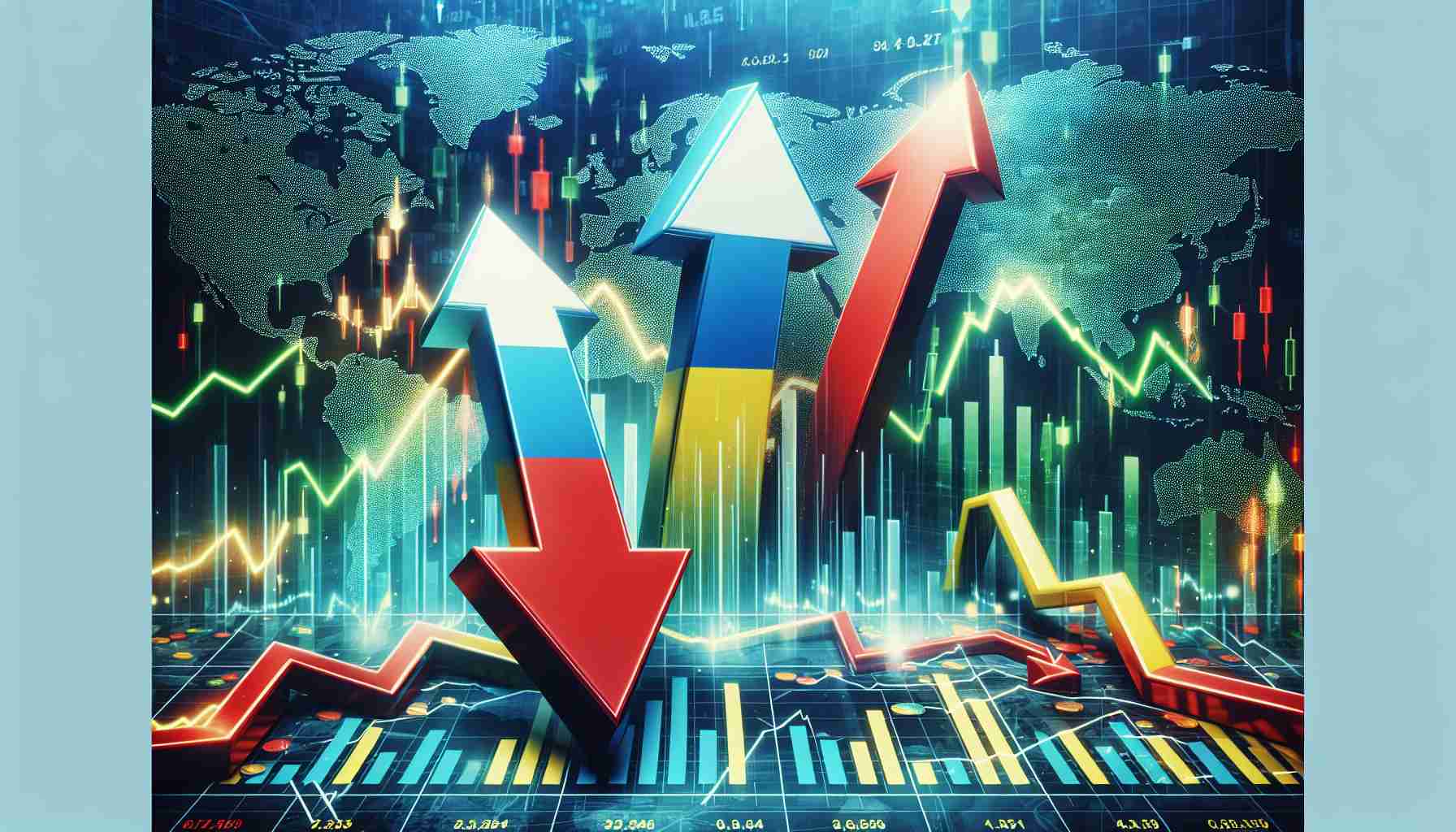Recent shifts in geopolitical dynamics have sent shockwaves through European financial markets, which reached a three-month low due to escalating tensions between Ukraine and Russia. This downturn followed a significant strike by Ukraine on a Russian military base, utilizing advanced U.S. missiles. With Russia’s dire warnings about nuclear options, anxiety swept investors, prompting a notable selloff.
However, a surprise announcement on Wednesday brought a glimmer of hope. Reports emerged indicating that Russian President Vladimir Putin may be willing to engage in ceasefire discussions with US President-elect Donald Trump. Should this dialogue proceed, it could mean a halt to Ukraine’s aspirations for NATO membership, ultimately relieving some of the market’s apprehensions.
On Tuesday, the Euro-Pan Stoxx 600 index dipped 1%, with major stock indices in Germany and France reflecting similar losses. Energy markets reacted sharply, with oil and natural gas prices soaring to their highest levels in over a year. Amid the turmoil, investors turned to gold, driving its prices up as they sought safety.
After the optimistic Wednesday announcements, the Euro-Pan Stoxx 600 index rebounded, rising by 0.5% as major exchanges across Europe experienced gains. Analysts remain cautious, suggesting that geopolitical developments and ongoing tariff concerns under the new U.S. administration could significantly affect European markets in the long run. Technology stocks led the recovery, particularly following Sage Group’s impressive performance announcement.
Tips and Insights on Navigating Geopolitical Financial Dynamics
In the wake of recent geopolitical tensions, especially relating to Ukraine and Russia, many investors find themselves grappling with uncertainty in financial markets. With the Euro-Pan Stoxx 600 index reflecting a significant downturn followed by a slight recovery, understanding how to navigate these changes is crucial. Here are some tips, life hacks, and interesting facts to help you stay informed and manage investments wisely during turbulent times.
1. Stay Informed Through Reliable Sources
It’s essential to keep abreast of the latest news in finance and geopolitical events that can affect markets. Reliable news outlets, such as Reuters and Bloomberg, offer timely updates and deeper insights into market trends. Consider subscribing to newsletters that focus on global economics and finance for curated content.
2. Diversification is Key
In uncertain times, diversifying your investment portfolio can help spread risk. Instead of concentrating assets in a few sectors, consider spreading investments across different geographical regions and sectors, including technology, energy, and precious metals like gold, which historically perform well during crises.
3. Utilize Technology to Track Investments
Many applications and platforms provide real-time market tracking and analysis. By leveraging financial apps, you can set alerts for price changes, follow specific stocks, or monitor indices. Apps like Yahoo Finance or MarketWatch equip you with essential tools to make informed decisions quickly.
4. Understand Market Sentiment
Market reactions can often be influenced by public sentiment and geopolitical rhetoric. Watching trends on social media or sentiment indicators can provide insights into how investors are currently feeling about the market. This can help you time your investments more strategically.
5. Risk Management and Emotional Discipline
In volatile markets, emotional reactions can lead to poor investment decisions. Establish a clear risk management strategy that defines your threshold for losses and gains. Stick to disciplined entry and exit points and avoid making impulsive decisions driven by fear or excitement.
Interesting Fact: Did you know that gold not only serves as a hedge against inflation but has historically been referred to as a “safe haven” asset during economic turmoil? It often sees price increases during geopolitical conflicts or when the stock market experiences significant downturns.
6. Keep an Eye on Global Relations
Geopolitical actions, such as ceasefire talks or policy changes, can significantly impact market performance. Understanding the implications of these discussions can help you anticipate market trends. For example, the recent potential for dialogue between Putin and Trump brought a temporary sense of relief to investors, leading to a resurgence in stock prices.
7. Consider Consulting a Financial Advisor
If navigating these complexities feels overwhelming, seeking guidance from a financial advisor can be beneficial. They can provide personalized strategies to optimize your investments according to your financial goals and risk tolerance.
By utilizing these tips and remaining proactive in response to global events, you can better position your investments to weather geopolitical uncertainties. Remember, the financial landscape is ever-changing, and informed decisions are your best tools for success.
Stay updated and informed about market dynamics by visiting Finance.com.



















